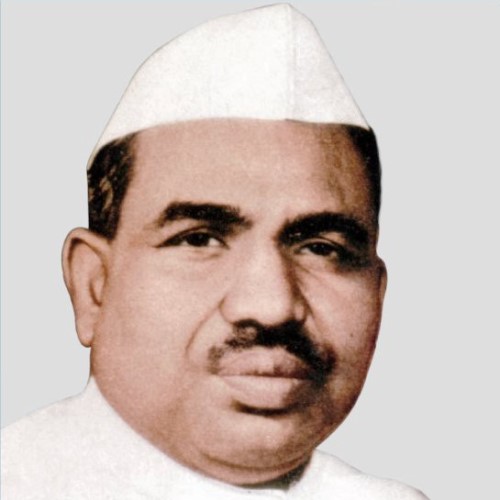Early Life
Jagjivan Ram, a Dalit leader popularly referred to as ‘Babuji’, was born on 5 April 1908 in Bihar. He attended high school at Arrah Town School, Bihar where he got the opportunity to interact with Madan Mohan Malviya. Impressed by Ram’s intellect, Malviya, invited him to study at the Banaras Hindu University. Acting on Malviya’s offer, Ram passed the Inter Science Examination at Banaras Hindu University- where he faced discrimination due to his caste. Subequently, Ram graduated with a B.Sc from the University Of Calcutta.
As a student in Calcutta University, he organised a rally for labourers and got the opportunity to interact with nationalists and revolutionary leaders like Chandrshekhar Azad and Manmath Nath Gupta.
Ram was an avid reader- he read in English, Hindi, Sanskrit and Bengali. This love for reading seems to have propelled his interest in politics by exposing him to a wide range of ideas and perspectives.
Role in India’s Independence Movement
Ram was active in the nationalist movement as a student. However, his work was not limited to the freedom struggle. He also worked for the emancipation of the Depressed Classes. In the 1930s he was extensively involved in social work like setting up relief camps for victims of the Bihar earthquake in 1934.
He participated in mainstream and popular movements like the Civil Disobedience Movement, Salt Satyagraha and Quit India Movement. He was imprisoned twice for his involvement in these movements.
Ram founded the Khetihar Mazdoor Sabha which focused on securing farmer rights and the All India Depressed Classes League. Through these organisations he wanted to include the Depressed Classes in the nationalist movement and demand for both social reform and political representation. He took on a stronger political role during these years and in the Indian Delimitation (Hammond) Committee hearings, in 1935 Ram stressed on securing voting rights for Dalits.
In 1936 at the age of 28, Ram entered electoral politics. After being nominated to the Bihar Legislative Council in 1936, he contested the Bihar Legislative Assembly elections on a Depressed Classes League ticket. He was appointed as the Parliamentary Secretary in the Ministry of Agriculture, Co-operative Industry and Village Development under the Congress government. However, in 1938 he resigned from the cabinet on the issues of Andaman prisoners and India’s involvement in the Second World War.
In the 1946 General Elections, he won from the constituency of East Central Shahabad. On 30 August 1946, Ram was invited to be a part of the Interim Government- the only Dalit member. He was in-charge of the Labour Ministry.
Contribution to Constitution Making
Ram was elected to the Constituent Assembly from Bihar on a Congress party ticket. He was a member of several crucial committees including the Advisory Committee and Sub-Committee on Minorities Rights. But he did not actively participate in the plenary debates.
Later Contributions
Ram was one of India’s most prolific parliamentarians. Having been elected to the Bihar Legislative Council in 1936 at the young age of 28 years, he holds the distinction of serving as a Member of the Central Legislature and thereafter Parliament for more than 40 years.
During his long political career, he held various portfolios: Minister of Labour (1946-52 and 1966-67); Communications (1952-56); Railways (1956-62); Transport and Communications (1962-63); Food and Agriculture (1967-70); Defence (1970-74 and 1977-79); Agriculture and Irrigation (1974-77).
At the age of 78, Ram passed away on 6 July 1986 while still a member of the Lok Sabha. His cremation ground is recognized as a memorial – Samta Sthal. Every year on 5 April, India celebrates ‘Samta Diwas’ (Equality Day) to commemorate his birthday.
- Jagjivan Ram: The Harijan Leader by S.R. Bakshi (South Asia Books, 1992)
- Jagjivan Ram Aur Unka Netritva by R. Prasad (Quality Books, 2022)
- A website maintained by the Jagjivan Ram Foundation: http://jagjivanramfoundation.nic.in

